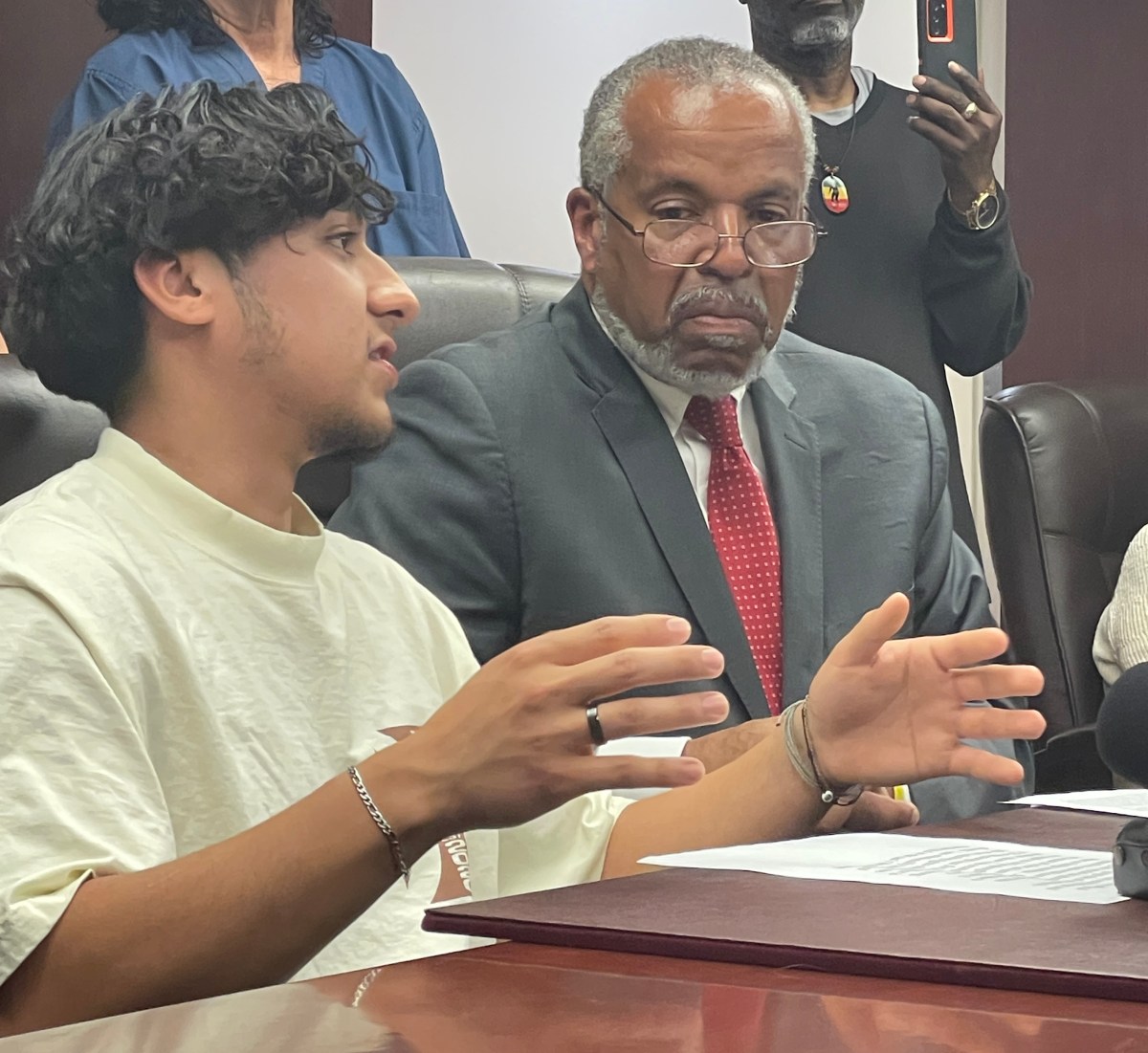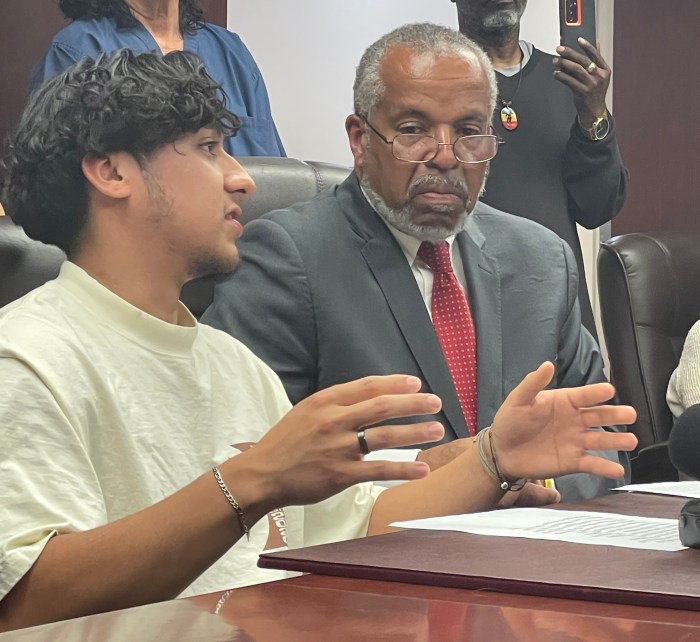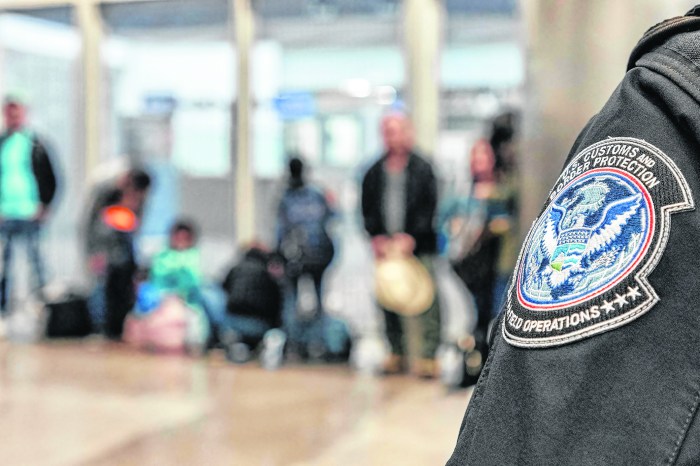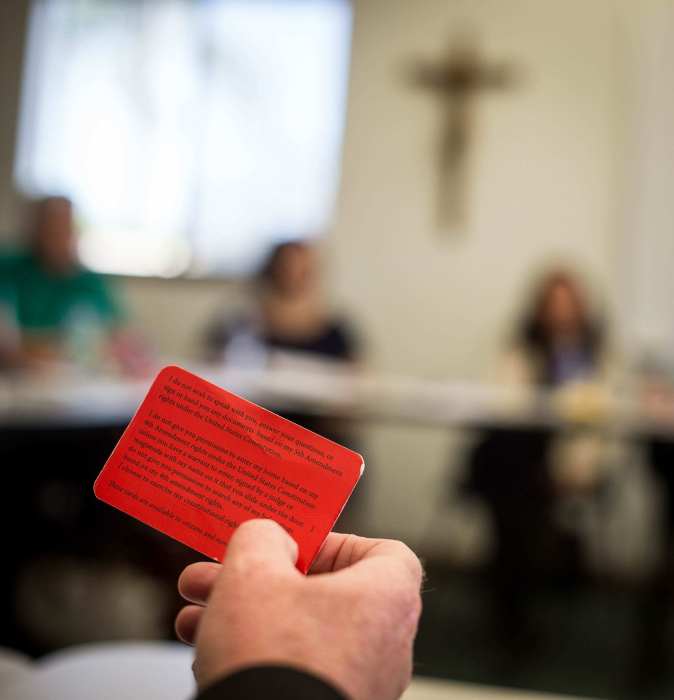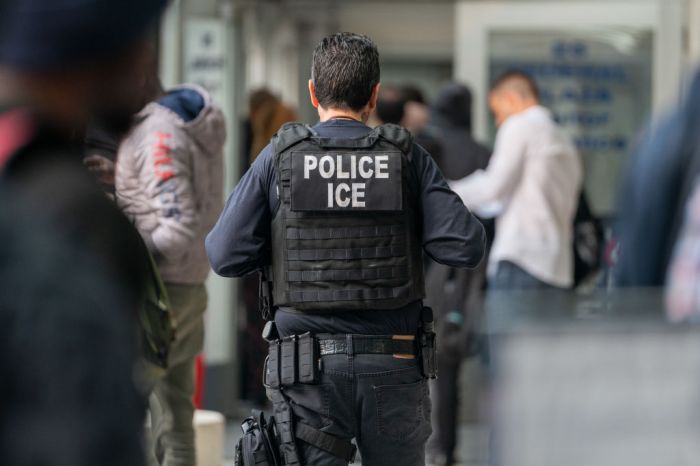Elzon Lemus, a 23-year-old electrician who was born, raised, and still lives in Brentwood, said he was a passenger in a car on his way to a job site on June 3 when six unmarked vehicles operated by U.S. Immigration and Customs Enforcement agents stopped him on Union Avenue in Westbury.
Lemus said one ICE agent approached the car and repeatedly asked him for his ID. The agents did not wear name tags or badges, and when he asked for that information, they did not provide it.
Lemus said he was placed in handcuffs for approximately 20 to 25 minutes and not allowed to leave the scene for at least an hour.
He said one agent told him he looked like somebody they were looking for before he was released, but did not answer when asked who that person was.
Is that the new standard in the United States? An ICE agent who says he or she thinks someone looks like somebody they are looking for can pull them over, handcuff them and detain them?
A large majority of the public supports the Trump administration’s efforts to deport migrants with criminal records.
But do we really want to stop American citizens on the way to work?
Lemus’s attorney, Frederick Brewington, said at a press conference that he believes his client and others have been victims of racial profiling and that this was a clear instance of that.
“There has been a scourge happening in the communities of color and largely with regard to the communities of our Hispanic brothers and sisters that cannot and should not be allowed, and should not be allowed to continue,” he said.
This is not an isolated incident in Nassau County.
ICE agents detained four people on Wednesday, June 11, near the Long Island Railroad station in Glen Cove, one of five reported actions taken in Nassau County this past week.
Glen Cove City police officers said they were given no notice. They said they learned of the people being detained after responding to a report of an assault near the LIRR train station on Cedar Swamp Road, according to Detective Lt. John Nagle.
Glen Cove Mayor Pamela Panzenbeck said people should not be concerned.
“They were looking for specific people who are very bad people,” Panzenbeck said. “They are not going into schools. It was not a raid roundup. They are looking for violent criminals.”
But neither Panzenbeck nor Nagle said they knew who ICE agents had detained or what their criminal history was.
This raises several questions, starting with why Panzenbeck believes the people taken are “very bad people.”
Does the fact that ICE detained the four people actually mean they are bad people? That seems to defy logic.
What are the odds that all four people standing outside the LIRR station in Glen Cove were illegal aliens with criminal histories?
ICE should disclose the names and criminal histories of those detained, where they were taken, and whether they have been provided with legal counsel.
ICE allows you to locate an individual if you have their country of origin, and either their nine-digit immigration detention number or their full name. But they don’t announce the names of people detained, why and where they are being kept.
The U.S. Attorney’s Office, the Nassau County district attorney and local police forces all routinely report this information when arresting or indicting people.
Why not ICE?
The U.S. Supreme Court recently affirmed the right of all people, citizens or not, to due process, a legal term for the right to respond to government charges in a court of law.
The importance of this right has been proven by ICE’s detention of people who had no criminal history and some who were American citizens. Some have been shipped across this country. Others are even sent to foreign countries.
Without due process, ICE can simply claim someone is an illegal migrant and ship them anywhere they want. No matter who they are.
The Trump administration recently lowered the bar on detaining people from criminals to those merely undocumented after Stephen Miller, the White House deputy chief of staff for policy, demanded that ICE arrest at least 3,000 people a day, or more than 1 million a year.
This is reflected in ICE’s arrests at people’s places of work – on farms, restaurants, and Home Depots. But it might not be limited to places of work.
In February, President Trump revoked the 2011 U.S. Immigration and Customs Enforcement “sensitive locations” policy, which restricts enforcement actions at places like schools, churches and hospitals.
On Thursday, June 13, the Trump administration abruptly shifted the focus of its mass deportation campaign, telling ICE officials to largely pause raids and arrests in the agricultural industry, hotels and restaurants.
Trump cited the high financial cost to the three industries in shifting ICE’s focus and his belief that these workers are not criminals.
We hope ICE takes Trump’s abrupt shift into account when dealing with the case of Fernando Mejiahe, the manager of Port Washington’s Schmear Bagel & Cafe
Mejiahe was detained by ICE agents as he arrived at work outside the shop on Thursday, June 12, an employee told Schneps Media LI. The employee said Mejia, 41, who had immigrated from El Salvador about 20 years ago, was detained for allegedly overstaying his visa.
Panzenbeck said Glen Cove residents shouldn’t be worried by the ICE arrests in that city.
Others disagree.
A board member for La Fuerza Unida, a nonprofit organization that helps Hispanic-Americans in Glen Cove and its neighboring communities, said what took place in Glen Cove was “unsettling.”
“Undocumented workers, the backbone of our local economy and culture, are going into hiding,” said the board member who asked to be anonymous. “The sense of safety that once defined our city has been replaced with uncertainty, suspicion, and silence. This is not the Glen Cove we know.”
We agree. Not only is this not the Glen Cove we know, but it is also not the United States we used to know.




